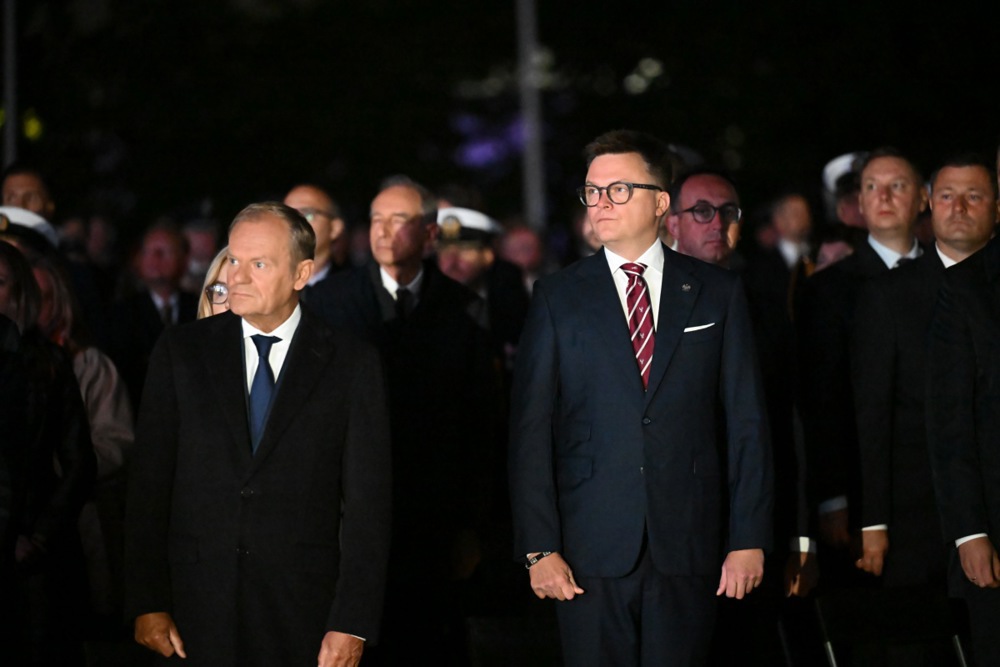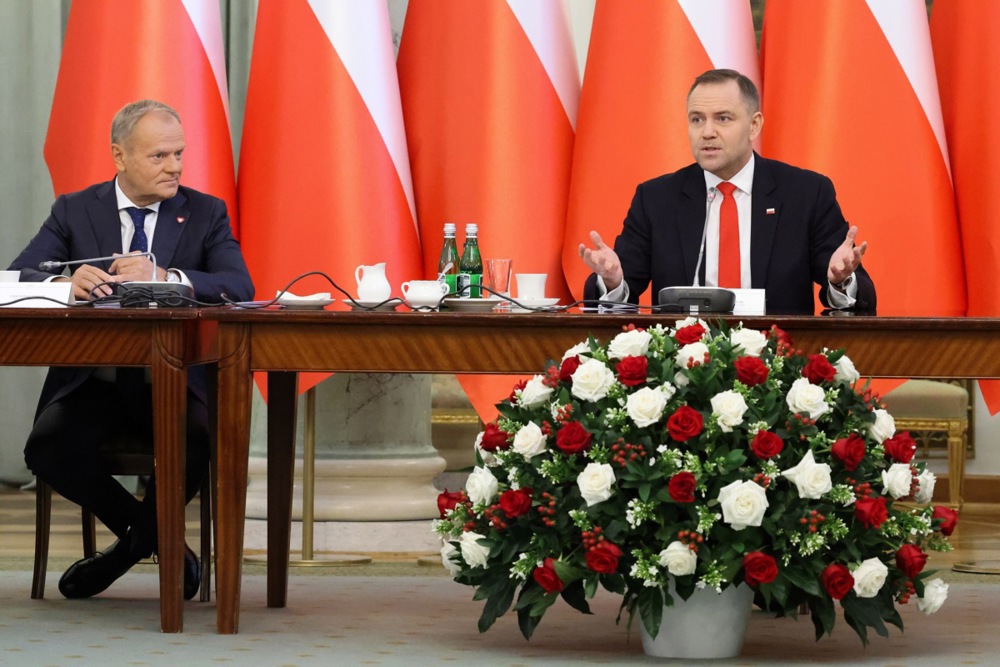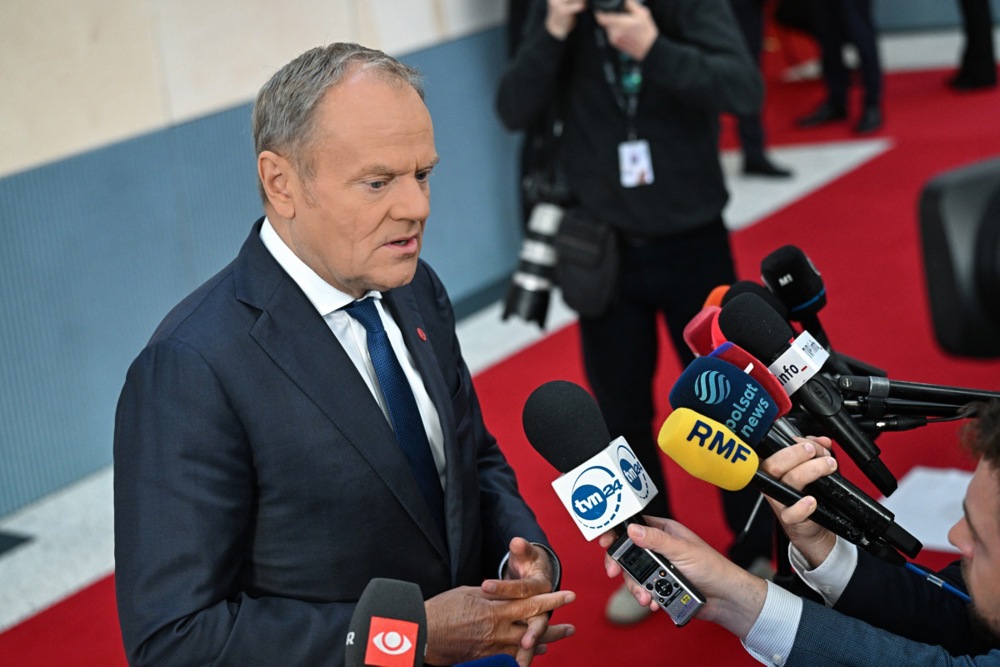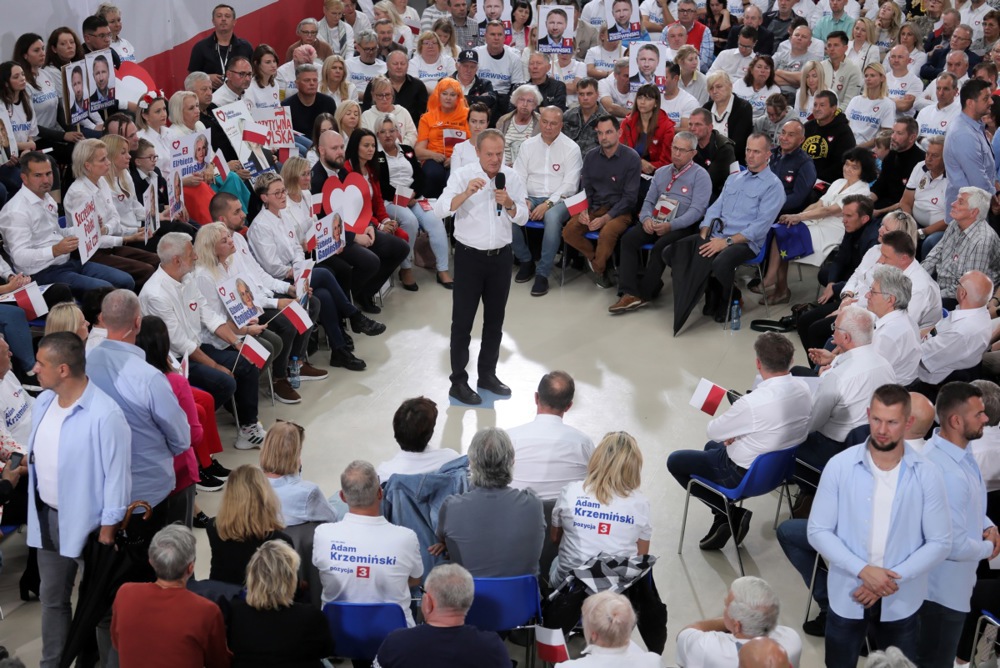Polish President Karol Nawrocki and Prime Minister Donald Tusk have clashed over appointments and access to security service chiefs.
Tusk, who heads the ruling centre-left coalition, has criticised the opposition Conservatives (PiS)-aligned Nawrocki of undermining national security by refusing to approve promotion of 136 officers from the security services.
The PM took to X on November 7 to describe the President’s refusal as “another chapter in a war against the government”.
Tusk stressed that the officers, who had completed their studies and officer courses, were motivated by patriotism rather than career ambitions.
“These promotions were meant for 136 brave Poles, future intelligence and counterintelligence officers,” Tusk said, noting that such promotion requests are typically submitted to the President’s office before Independence Day celebrations on November 11.
“This time, the President decided not to approve them, and I don’t know why. Winning an election alone is not enough to be President,” he added, underlining escalating tensions between the executive and the presidency.
Nawrocki hit back furiously in a video accusing Tusk of attempting to marginalise him over matters of national security.
“Being Prime Minister takes more than posting on X. You also need to know how to govern and put the State above party interests,” he said.
“The Prime Minister, in his usual style, lied and failed to explain what really happened,” Nawrocki added.
“Donald Tusk decided that the heads of the special services are forbidden to meet with the President of the Republic of Poland.
“In this way, the Prime Minister once again used the special services as a political weapon. While a war is taking place beyond our eastern border, he decided that the President – the commander-in-chief of the armed forces – should be denied access to the most important information about the state’s security,” said Nawrocki.
“Four of my meetings with the heads of special services were cancelled. It was during those meetings that key issues for Poland’s security were to be discussed and decisions regarding officer promotions made.
“However, this did not happen because the interests of the state were confused with party interests,”added Nawrocki.
“I cannot and will not agree to this. Prime Minister Tusk must understand that he is not a king but the head of government and that means he has a duty to co-operate with the President elected by the Polish people, especially on matters of national security.
“Using the security services for fleeting fame on social media is extremely irresponsible and unacceptable. Soldiers and officers cannot be held hostage to the Prime Minister’s cynical political games. The safety of Poles has no party colours,” Nawrocki concluded.
The President and the PM have clashed repeatedly over a wide range of domestic issues since Nawrocki’s inauguration in August. Nawrocki has vetoed several pieces of government legislation and refused to confirm ambassadorial appointments sought by the Tusk administration.
In another such clash on November 7, Nawrocki has submitted a bill to parliament intended to lower electricity prices for households by around a third and for businesses by a fifth. It was welcomed by energy experts but is unlikely to be passed by the pro-Tusk majority as it could impose a shortfall in the State budget.
The President reacted to the fact that Poland has recorded the third-fastest rise in electricity prices in the European Union over the first half of this year, up by 20 per cent year-on-year .
During this year’s presidential election, Nawrocki pledged to reject “green” taxes, withdraw Poland from the Emissions Trading Scheme (ETS) and promised to cut electricity prices by a third.
His legislative proposal concentrates on reducing distribution fees, scaling back renewable energy certificates, removing certain surcharges and cutting VAT on electricity from 23 per cent to 5 per cent.





